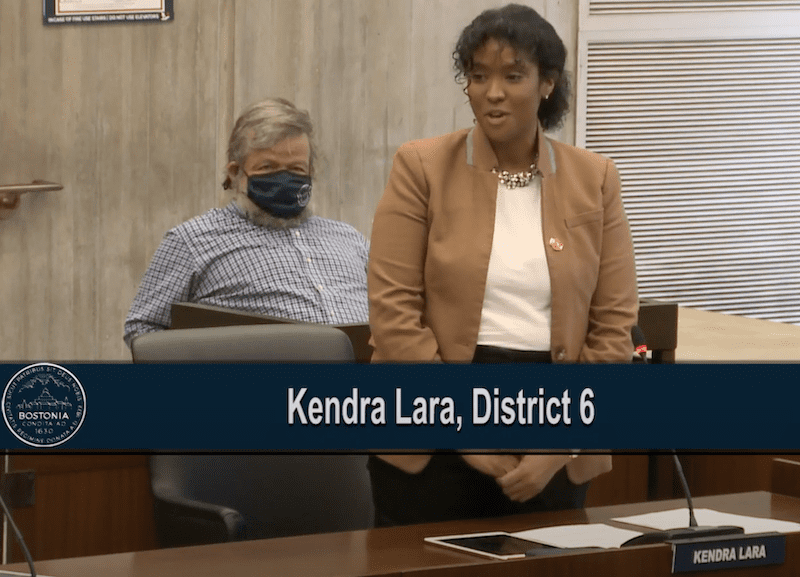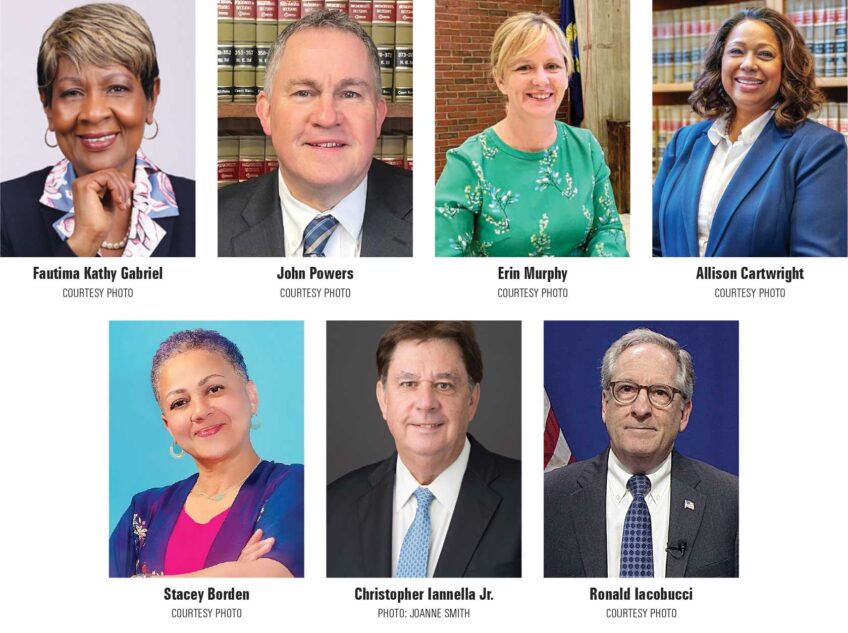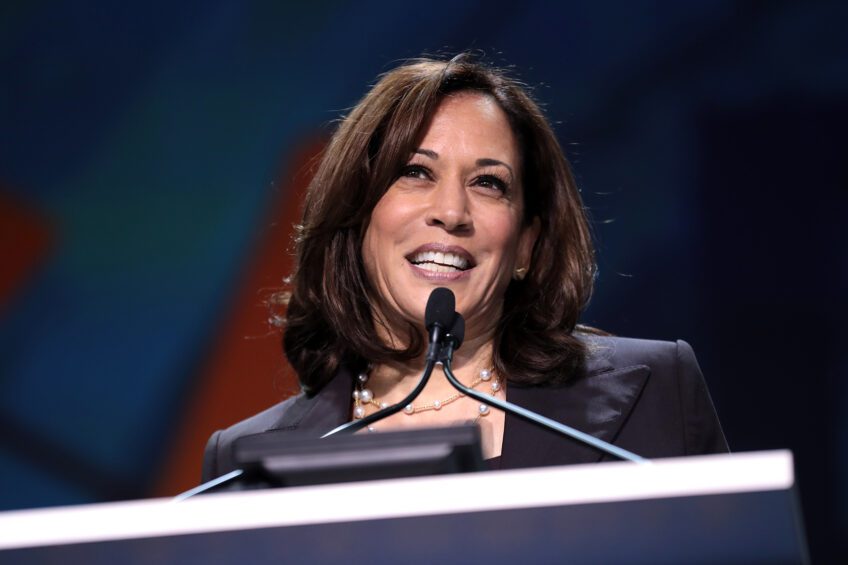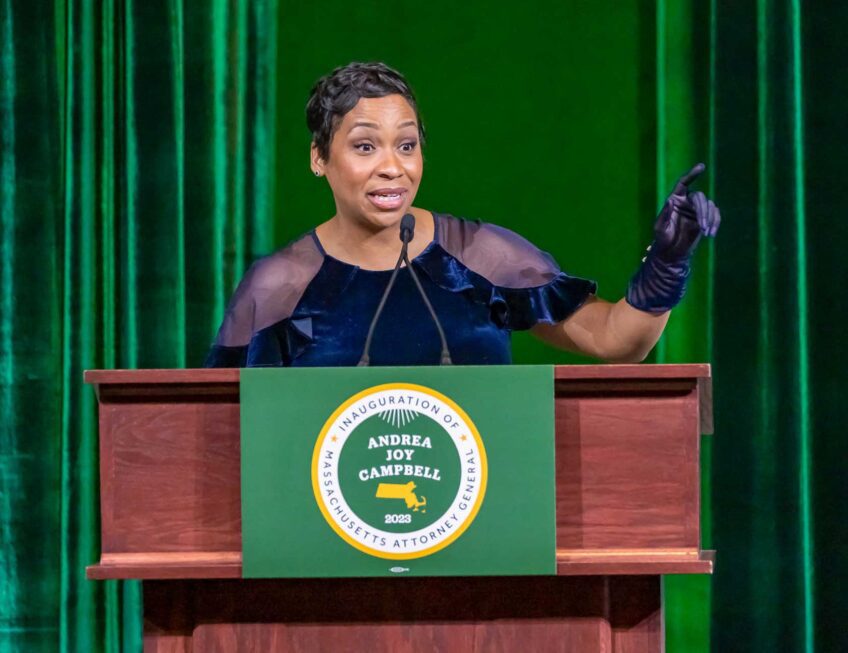
Last Wednesday, in her first speech as a city councilor, Kendra Lara introduced her first piece of legislation to give legal immigrants the right to vote in the City of Boston.
The District 6 councilor gave an emotional speech, both in English and in Spanish, that touched on her own ties to the issue –– Lara is a first-generation citizen with roots in the Dominican Republic.
She spoke to her father’s help campaigning for her, canvassing his neighborhood, and using his limited English to spread her message.
“Despite all his hard work, his pride in seeing my name on yard signs all across the district, he never had the chance to see my name on the ballot,” she said.
Lara’s legislation, which calls for Council to hold a hearing regarding the restoration of voting rights to legal immigrants including Lawful Permanent Residents, visa holders, Temporary Protected Status recipients and Deferred Action for Childhood Arrivals recipients, was ultimately referred to the Committee on Civil Rights and Immigrant Advancement Wednesday.
While at the turn of the 20th century, foreign-born residents had the right to vote across the U.S., states passed laws taking away that right between 1901 and 1926 amid a rise in nativist sentiment.
Several members of the Council, including councilors Tania Fernandes Anderson, Ruthzee Louijeune and Liz Breadon who all have their own ties to immigration issues, gave vocal support to the legislation.
“I became a citizen in 2019. I lived in this country for almost 20 years undocumented. I came when I was 10,” Fernandes Anderson said. “I voted the very first time in 2020 and then ran for office in 2021. And today here I am a district city councilor. So I deeply understand this issue, and have dedicated myself for 33 years to a country, to a society, to a city that I could not vote in. I look forward to the discussion.”
In a conversation with the Banner, Lara expanded on her experience growing up in what she calls a “mixed-status” household, and how that informed her push for this new legislation.
“My father is now a legal resident, but him and my mom and some of my siblings have at one time or another, been undocumented as well,” she said. “All of the fears and complications that come with being a part of a family of mixed-status have been front and center for me basically my entire life.”
Lara spoke to how despite “being good citizens, being good neighbors, being good people,” her loved ones continued to live under the threat of deportation. She said both her mother and oldest brother were deported at one time.
And her father, once he did get legal residency, still could not use the power of a vote to engage his families’ best interests. Lara said she hopes her maiden speech helped convey that as a larger idea –– that diverse ideas are the key to a better city.
“I think that what my maiden speech was trying to really convey was a larger idea. And it was a larger idea about what a social democracy actually looks like –– and that requires that we expand our electorate significantly,” she said.
Lara, who is person of color period to be elected to represent her Jamaica Plain/West Roxbury district on the City Council, has positioned herself as the most outwardly progressive councilor among a field of left-leaning representatives –– last month she labeled herself a socialist in an interview with Jamaica Plain News.
Heading up both housing and environmental committees, she has put forth goals for tenant protections and rent stabilization, anti-displacements zones, strengthening of public transportation and a focus on becoming a Green New Deal city.
In her conversation with the Banner, Lara said her office has been meeting with housing justice organizers and people who do housing work in the city, “having a conversation with them about what does the strategy look like for our housing committee and collectively developing a strategy for the housing committee and having our ordinances in our legislation come out of that process.”
She added that she’s been engaged in a similar process with environmental justice leaders.
Asked about whether she thinks her influence will pull the Council as a whole to the left, Lara said she does but that she appreciates her colleagues’ spectrum of beliefs.
“I think that there’s a direction that we need to be moving in. And I don’t think that there’s only one way to get there,” Lara said. “And so I appreciate being on the Council with people who have a diversity of political ideologies and ideas on how we solve our issues.”






